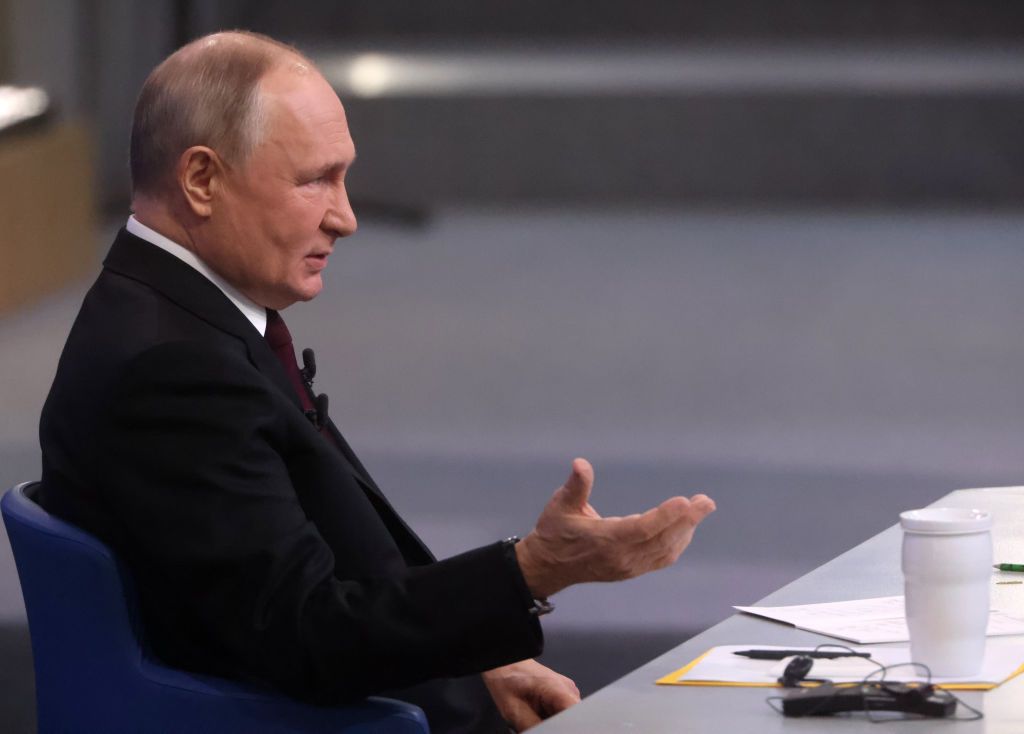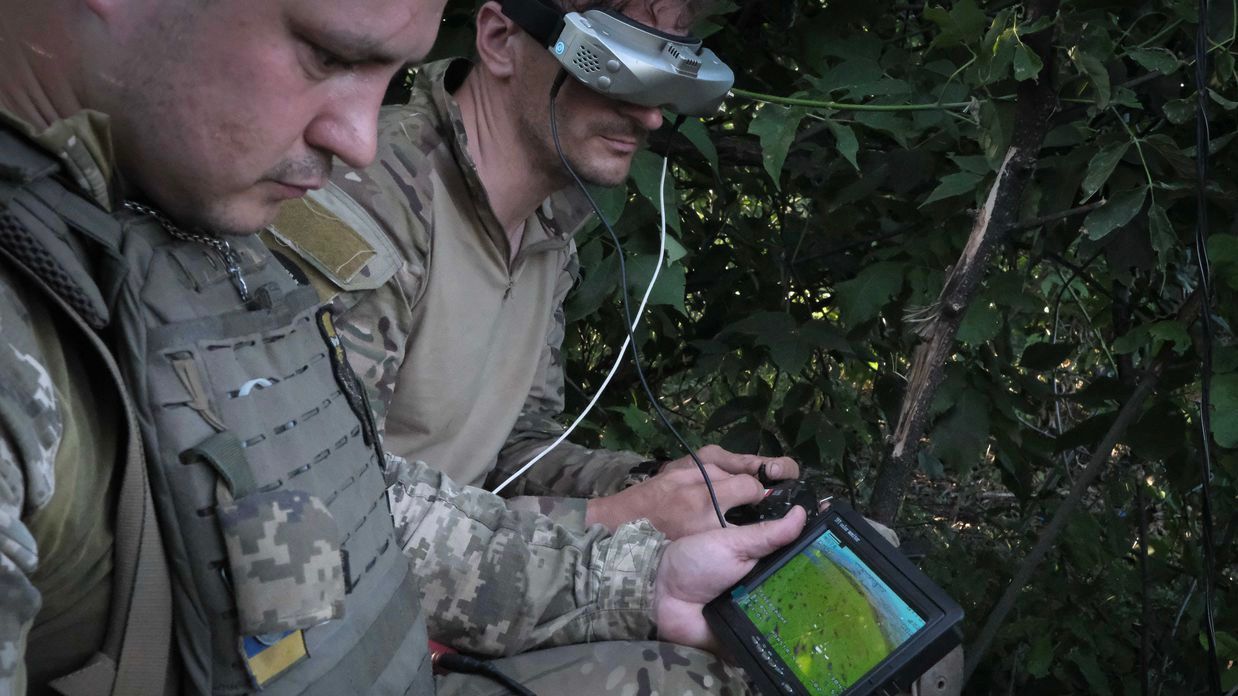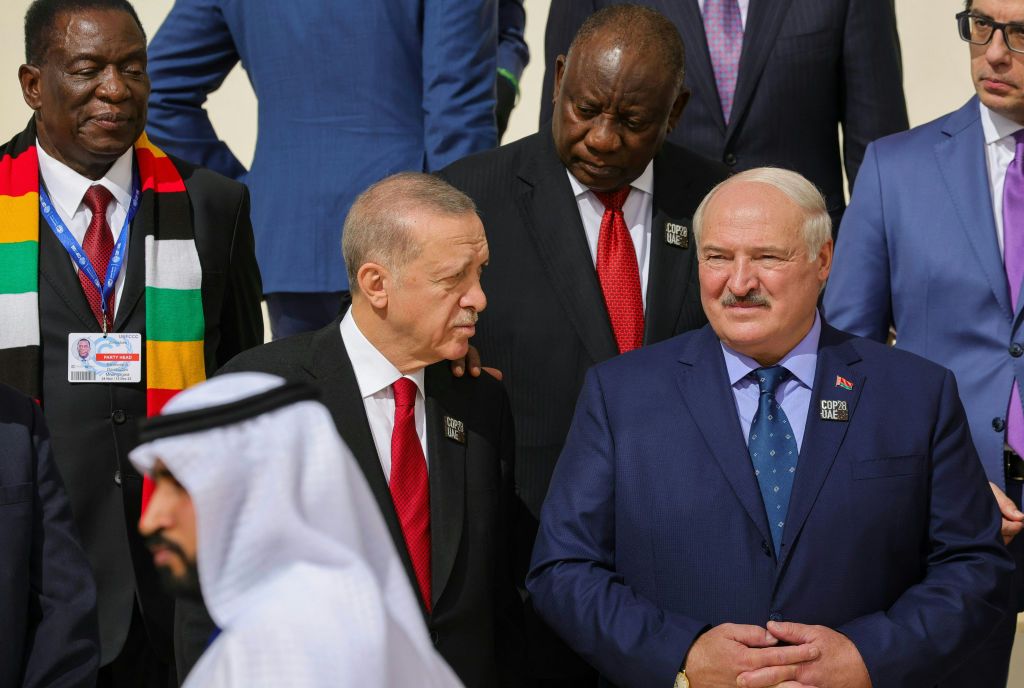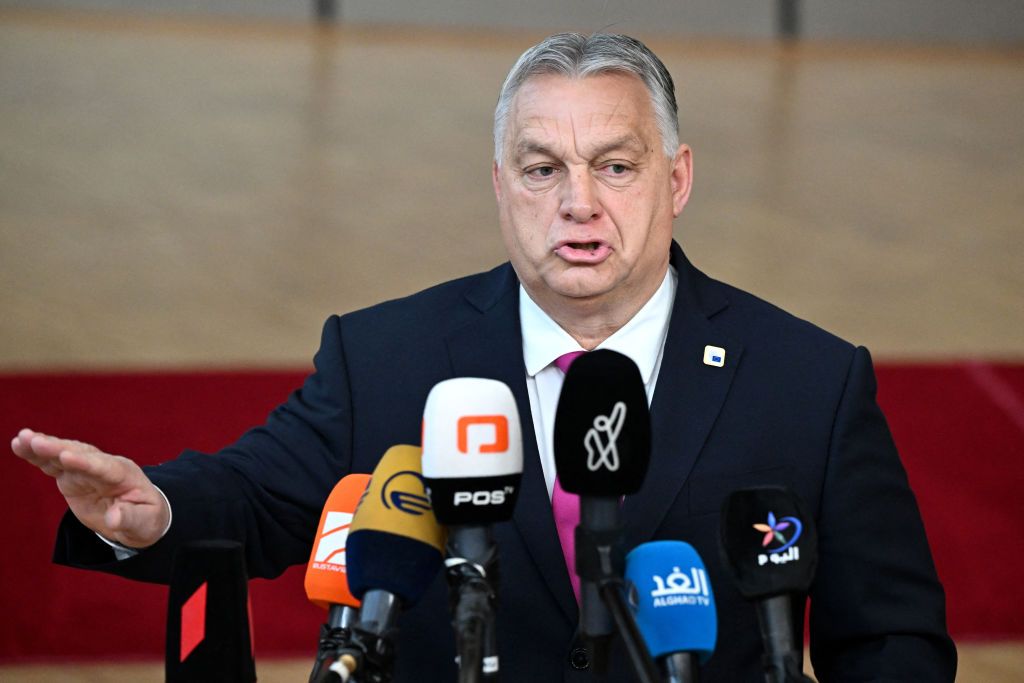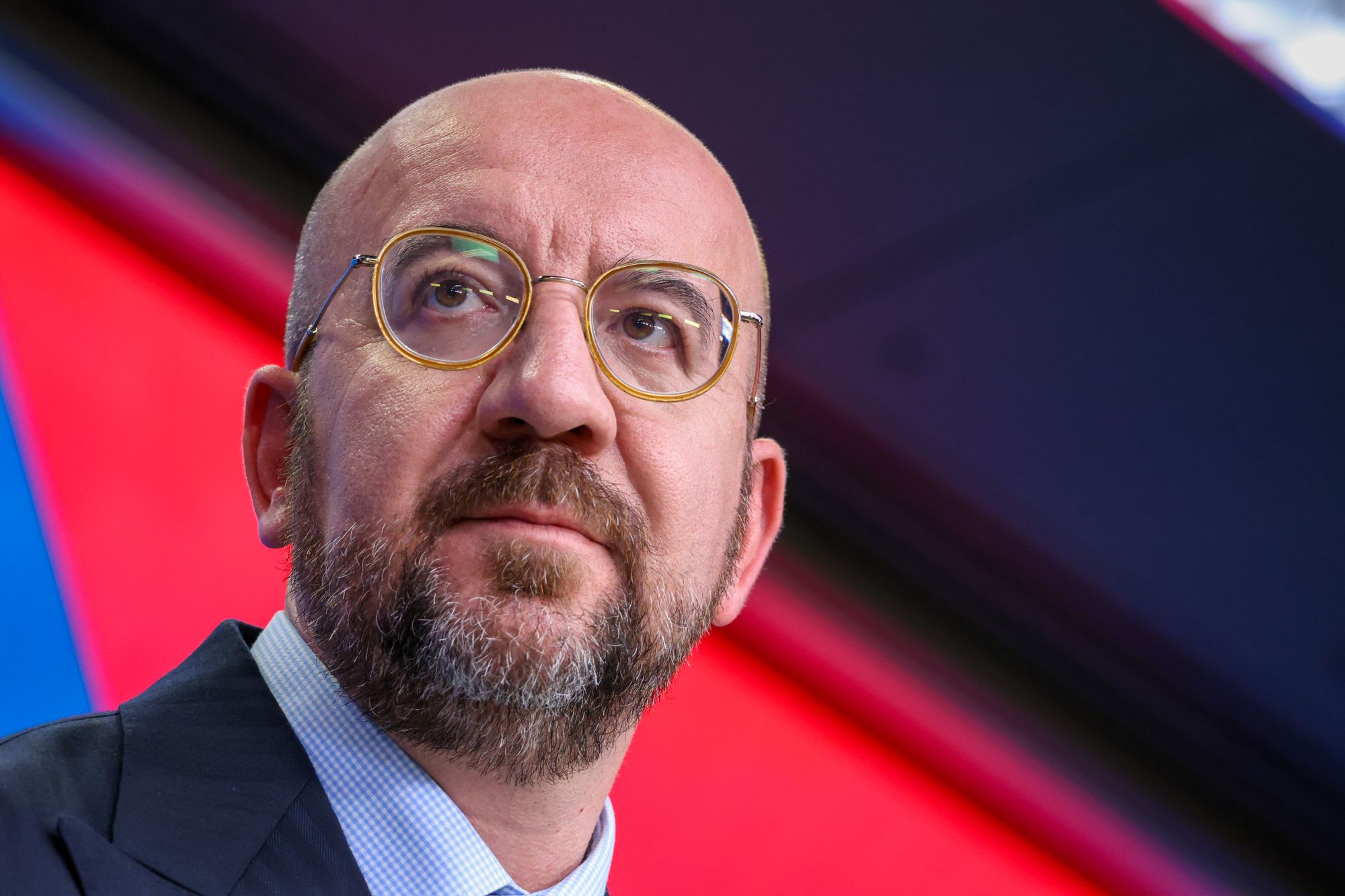Ukraine war latest: Putin exaggerates number of Russian troops in Ukraine, intelligence says

Key developments on Dec. 15:
- Military intelligence: Putin exaggerates number of Russian troops in Ukraine
- Ukraine to focus on domestic arms production in 2024, defense minister says
- Von der Leyen: EU to find 'operational solution' for Ukraine funding by next Council meeting
- Military: Russian sabotage groups tried to enter Ukraine 7 times in last 2 weeks
- Belarus launches sudden readiness check of air defenses.
There are around 450,000 Russian troops deployed in Ukraine, rather than 617,000 as Russian President Vladimir Putin claimed, the spokesperson of Ukraine's military intelligence agency (HUR), Andrii Yusov, said on Dec. 15.
During his first major press conference since the start of the full-scale invasion, Putin flaunted Russia's alleged military successes and made claims about the number of Russian troops stationed in Ukraine.
"The enemy is giving distorted data to increase information pressure on our country," Yusov said on television, saying the messaging may be aimed to "scare someone abroad" or motivate the domestic population.
There are now more than 450,000 Russian soldiers fighting in Ukraine, according to the military intelligence spokesperson. The only way that Putin's numbers would be realistic is if they included killed soldiers, he added.
"Every time he (Putin) opened his mouth there, he lied," Yusov added.
A U.S. intelligence report cited by Reuters on Dec. 12 said that Russia lost the vast majority of its original invasion force.
According to the report, Russia began its full-scale invasion of Ukraine with 360,000 personnel. By now, 87% have reportedly been killed or injured.
Russia is expected to launch a new mobilization drive in 2024, most likely after the presidential elections in March. The country declared a partial mobilization of 300,000 personnel in the fall of 2022.
Umerov: Ukraine to focus on domestic arms production in 2024
The Ukrainian Defense Ministry aims to localize arms production in Ukraine next year, Defense Minister Rustem Umerov said during a Ukrainian-British defense industry conference, the ministry reported on Dec. 15.
"The United Kingdom is one of our main partners and allies," Umerov said.
"Thank you for all the provided weapons that helped us to withstand the first days of Russian aggression and now help to liberate Ukrainian lands."
The U.K. belongs to Ukraine's leading military donors, with $5.6 billion in defense assistance committed to Ukraine since the start of the full-scale invasion.
The support provided by London to Kyiv includes Storm Shadow long-range missiles, Challenger 2 tanks, logistical support, and more.
The minister called on British defense companies to strengthen cooperation with Ukrainian manufacturers.
He pointed out the advantages of operating in Ukraine, namely the possibility of testing in combat and quick feedback from the military.
"We are interested in direct deals with British manufacturers, ready to sign long-term contracts," Umerov noted.
Ukraine is allocating Hr 255 billion ($6.9 billion) of the state's budget to military production next year, according to the Defense Ministry.
Deputy Defense Minister Ivan Havryliuk said earlier that the country plans to increase the production of missiles, arms, and other military equipment several times next year, with a particular focus on air defenses.
Military: Russian sabotage groups tried to enter Ukraine 7 times in last 2 weeks
Groups of Russian saboteurs tried to enter Ukrainian territory seven times in the past two weeks, but five of the attempts were caught in the act by Ukrainian troops, Lieutenant General Serhii Naiev said on Dec. 15.
The Russian groups were forced to withdraw after suffering losses, according to Naiev.
He did not clarify what happened the two times that the saboteurs were not spotted on time.
The incursions were detected in the northern Sumy and Chernihiv oblasts and the eastern Kharkiv Oblast. Since retreating from northern Ukraine in April 2022 following the failed assault on Kyiv and being routed from Kharkiv in the fall 2022 offensive, Russian forces have continued to attack the area.
State Border Guard Service spokesperson Andrii Demchenko said on Dec. 1 that Russian saboteurs were increasingly trying to cross into Kharkiv Oblast, as opposed to the Sumy direction that was previously their main focus.
Demchenko said the shift in tactics could be a response to a lack of success from incursions into Sumy Oblast.
It's unclear if this strategy was maintained as of Dec. 15, as Naiev specifically spoke about an incursion in Sumy Oblast.
Belarus launches sudden readiness check of air defenses
The Belarusian military started a sudden readiness check of its air defense forces, involving anti-aircraft missile units and radio engineering troops, the country's defense ministry announced on Dec. 15.
Belarus is Moscow's close ally and has provided extensive support to Russia's invasion of Ukraine, namely allowing Russian troops to launch their unsuccessful invasion of Kyiv from its territory last year.
"Anti-aircraft missile units and radio engineering troops advanced to the designated areas and began to carry out combat missions," the defense ministry's statement read.
The readiness checks reportedly involve S-300 and S-400 air defenses, as well as Rosa-RB radar systems.
"During the inspection, personnel will have to perform tasks to detect and eliminate practice targets," the ministry said.
Belarusian opposition leader Pavel Latushka said in November that Belarus' military has grown stronger in terms of combat readiness and equipment since the start of the full-scale invasion.
"But this does not mean an additional risk of aggression by the Belarusian army against Ukraine," the opposition leader added.
Von der Leyen: EU to find 'operational solution' for Ukraine funding by next Council meeting
As Hungary opposed the EU's multi-annual financial framework that included 50 billion euros ($55 billion) for Ukraine, the European Commission will ensure an "operational solution" to the issue by the next meeting, Commission President Ursula von der Leyen said during a press briefing on Dec. 15.
Hungarian Prime Minister Viktor Orban announced earlier that he vetoed the funding for Ukraine, even though his abstention from a previous vote allowed an agreement on accession talks with Kyiv.
"We will use – as the Commission – the time until then to ensure that whatever happens at this next EUCO (European Council meeting), we will have an operational solution," von der Leyen pledged during the two-day summit in Brussels.
Von der Leyen commended the Council's decision on the accession talks with Ukraine as a "big investment in democracy that stands tall and united."
The EU should be able to financially support Ukraine even if Hungary continues obstructing the assistance, French President Emmanuel Macron said on Dec. 15, The Guardian reported.
While EU leaders prefer a unanimous agreement on the 50-billion-euro ($55 billion) funding for Kyiv, they believe they can collect the sum in loans and cash without Orban's support, The Guardian wrote.
"I think we can fund Ukraine if we are totally blocked next year," Macron told reporters after the EU summit in Brussels.
Speaking on the multi-annual financial framework, von der Leyen noted that the EU has "now come to the limits of our budget" to address "unexpected crises" such as the invasion of Ukraine, which is why the Commission recommended reinforcement of the budget in June.
European Council President Charles Michel said that 26 EU members supported the multi-annual financial framework, including $55 billion for Ukraine, but could not make a binding decision without the support of the 27th member.
The European Council would convene for a special meeting early next year, likely in late January or early February, to discuss the issue further.
"I am extremely confident and optimistic that we will be in a position to fulfill our promises to support Ukraine," Michel said.


